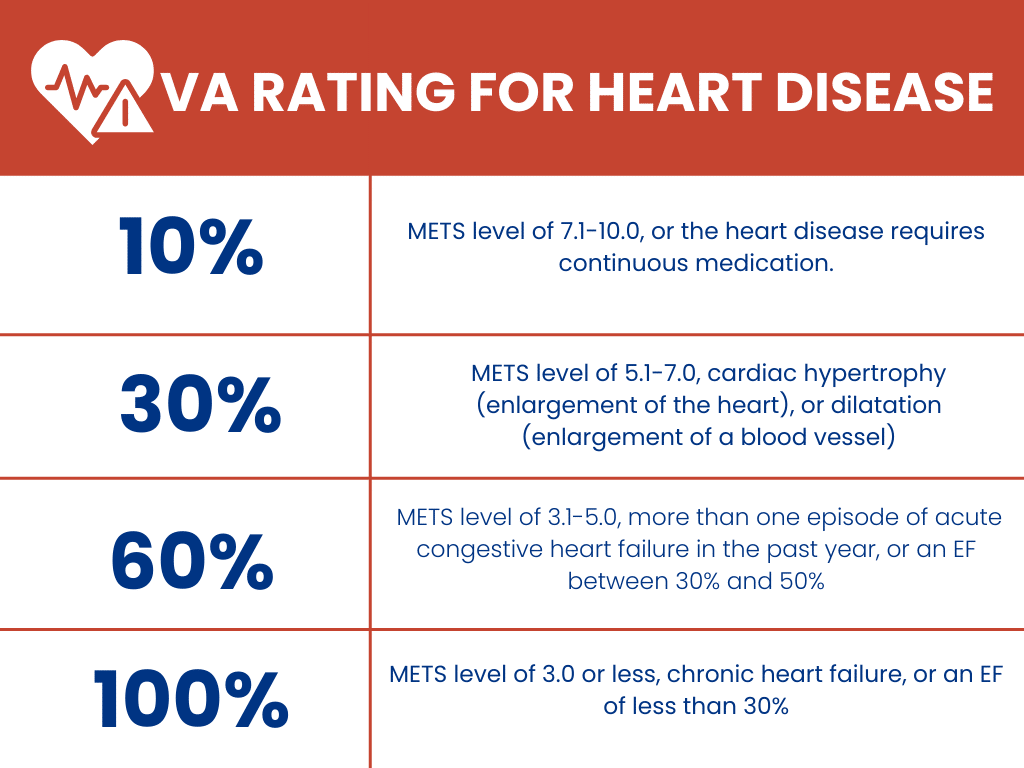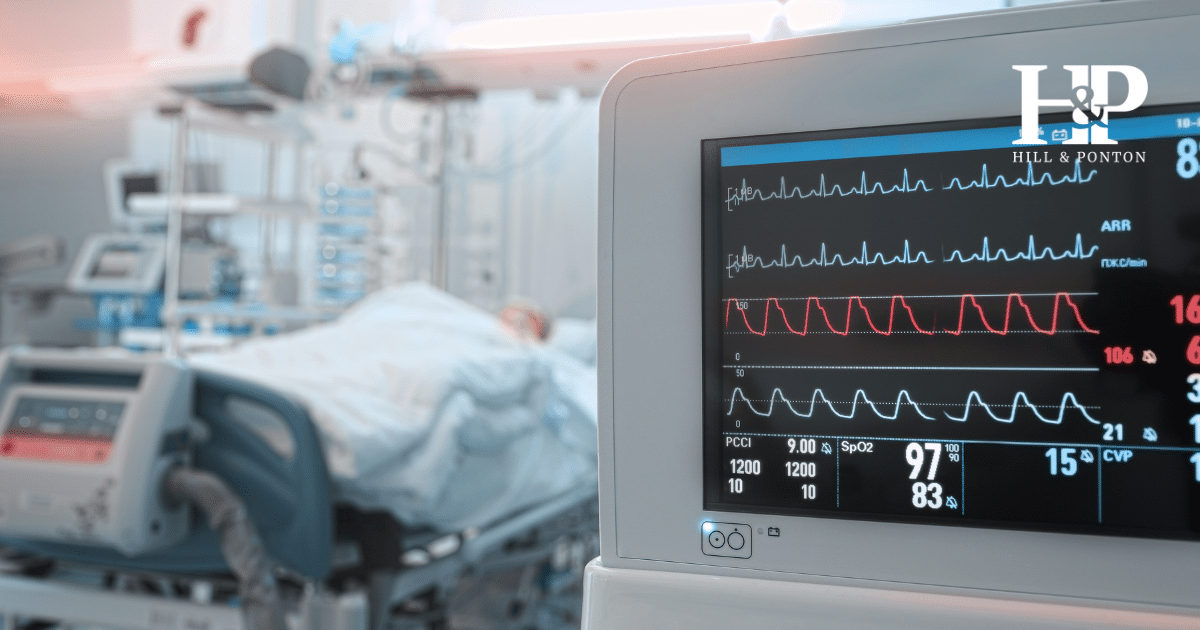Bradycardia is a condition characterized by an abnormally slow heart rate, typically below 60 beats per minute. The VA recognizes several types of bradycardia that may be eligible for disability benefits:
- Sinus Bradycardia: the most common type, where the heart’s natural pacemaker (sinoatrial node) fires at a slower rate
- Heart Block: when electrical signals between the atria and ventricles are impaired, slowing or blocking the heartbeat
- Sinus Pause (Sinus Arrest): when the heartbeat pauses for 3 seconds or more
- Sick Sinus Syndrome: a group of disorders affecting the heart’s electrical system
- Tachy-Brady Syndrome: a condition where slow heart rates alternate with episodes of rapid heart rates
What Is the VA Rating for Bradycardia?
- Temporary 100% Rating: Awarded for symptomatic bradycardia necessitating permanent pacemaker implantation. This rating applies for one month following hospital discharge after initial implantation or reimplantation.
- Ratings of 10%, 30%, 60% or 100% using the general rating criteria for heart disease, depending on the METS level, episodes of heart failure, ejection fraction, and related factors.

To learn more about the general ratings for heart disease, check out our guide here.
When Does Bradycardia Qualify for VA Disability?
Eligibility for VA disability benefits for bradycardia generally requires:
- A current diagnosis of bradycardia
- Evidence that the condition is service-connected (caused or aggravated by military service)
- Symptoms that impact daily life or require ongoing treatment
Is Bradycardia a Presumptive Condition?
Bradycardia itself is not recognized as a presumptive condition by the VA. However, it may be connected to conditions that are presumptive for certain veterans, such as ischemic heart disease for veterans exposed to Agent Orange.
Master the VA Disability Claims Process
How To Service Connect Bradycardia
To service connect your bradycardia, you’ll need to provide:
- Medical records showing diagnosis and treatment
- Service records indicating potential causes or onset during service
- A medical nexus opinion linking the current condition to military service
Every case is unique and the key to a successful VA disability claim for bradycardia is providing thorough, well-documented evidence of your condition and its connection to your military service.
Example: A Winning Case
A veteran who served on active duty from 1986 to 1996 underwent a periodic medical examination while in service, which revealed “sinus bradycardia with sinus arrhythmia, nonspecific intraventricular block, normal variant”. After discharge, the veteran experienced episodes of syncope and dizziness, leading to hospitalization in 1998 and eventual pacemaker placement in 2000.
The critical evidence supporting the veteran’s claim came from a 2000 treadmill report by a cardiac specialist. The examiner reviewed the veteran’s history, including the in-service finding of sinus bradycardia and subsequent symptoms. The specialist provided a medical opinion stating that the veteran’s “current illness represents a progression of this disease into later life” and that the condition found during active duty had progressed to cause ongoing symptoms related to bradycardia and vasovagal syncope.
Based on this evidence linking the current cardiac condition to the in-service findings, the Board of Veterans’ Appeals granted service connection for a cardiac disability characterized as sinus bradycardia.
My Claim Was Denied, What Can I Do?
If your claim is denied, you have several options:
- File a Notice of Disagreement (NOD) within one year of the decision
- Request a Higher-Level Review
- File a Supplemental Claim with new and relevant evidence
The best course of action depends on the specifics of your case and the reason for denial. Consulting with a VA-accredited attorney can help determine the most appropriate next steps. Contact us now for a free review of your case.
How to Increase a Bradycardia VA Rating
If you believe that your VA rating for bradycardia is too low or your condition has worsened, you can:
- Submit new medical evidence showing your condition has worsened
- Request a new C&P exam: If your last exam doesn’t accurately reflect your current condition
- Appeal the rating decision: If you disagree with the initial rating
Did the VA Deny Your Disability Claim?
Let our team review your case today!
Get a Free Case Evaluation



